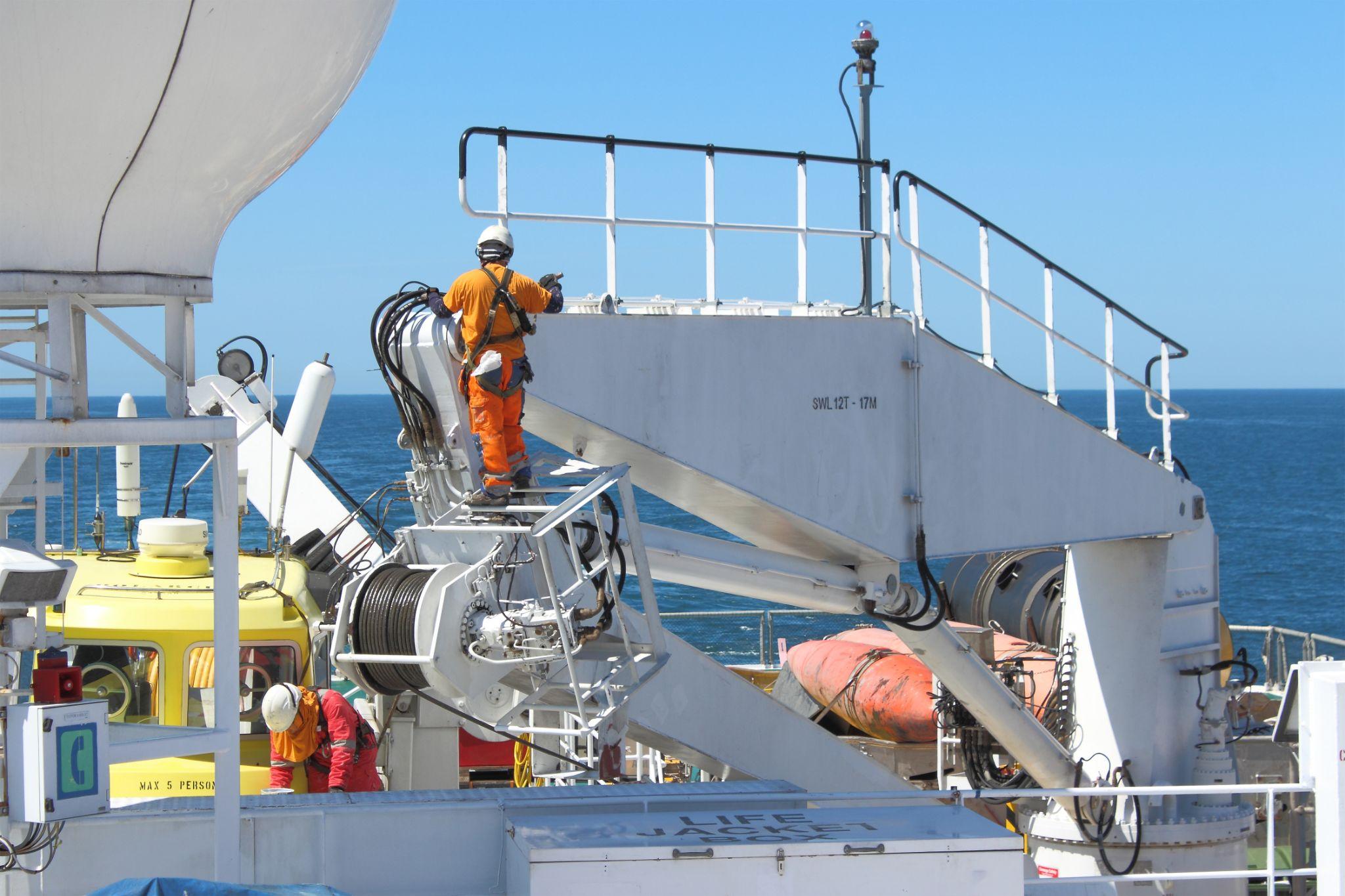Shoulder injuries are common in the maritime industry. Most of these fall into one of two categories, shoulder injuries caused by falling, and shoulder injuries caused by repetitive reaching motions. How can these common shoulder injuries be prevented, and are ship workers entitled to compensation for these maritime injuries?
Shoulder Injuries in the Maritime Industry
The shoulder joint is particularly prone to injury because of its complexity. This complex joint is where the bones of the upper arm meet the shoulder blade and collarbone. The arm bone (humerus) fits into a rounded socket on the shoulder blade and is held in place by muscles and tendons, known as a rotator cuff. A healthy shoulder joint allows you to raise your arm over your head and provides a full range of motion in all directions.
Along with this great range of motion comes instability in the joint. The shoulder is easier to dislocate by trauma than any other joint, and repeated stress on the shoulders can lead to debilitating joint injuries. Symptoms of maritime injuries to the shoulder include:1
- Being unable to move your arm freely due to stiffness or pain
- Instability, or the feeling the shoulder could easily pop out of its socket
- Swelling and intense pain, with a deformed shoulder outline
- Weakness in the arm, tingling, numbness, and difficulty performing normal tasks
Common Maritime Shoulder Injury Causes
Working on a ship or on the docks puts maritime workers at higher risk for common shoulder injuries. Some of the causes of these serious maritime injuries include:
- Improper lifting techniques
- Being dragged or dropped by equipment
- Being crushed by moving cargo
- Falls caused by slipping on wet moving decks
- Repetitive motion injuries from reaching out or overhead
- Falling from decks or down hatches
- Jerking from winches, lines, nets, or cables
- Lack of adequate safety training and equipment
- Insufficient crew or machinery to perform necessary functions
Maritime Shoulder Injuries Have Long-Term Impacts
Shoulder injuries sustained at sea are one of the reasons ship workers contact a maritime injury attorney. Once this joint is injured by an accident or long-term overuse, it can have a dramatic effect on your ability to work and your quality of life. Maritime employees are not eligible for workers’ compensation for shoulder injuries requiring surgery, and they may need to file a lawsuit under maritime law in order to receive full compensation from their employer.
Common Shoulder Injuries in the Maritime Industry
Just some of the serious shoulder injuries that maritime workers can experience while working in service to a vessel include:

- Misalignment of the humerus
- Torn rotator cuff, torn shoulder tendons, torn cartilage
- Shoulder impingement syndrome
- Dislocated shoulder, separated shoulder, AC joint sprain
- Broken clavicle (collarbone), scapular (blade) fracture, broken humerus
- Frozen shoulder, stiff shoulder, permanent limits to range of motion
- Tendonitis, bursitis, arthritis
Preventing Maritime Shoulder Injuries
While workers can recover from some of these injuries with proper treatment, rest, and physical therapy, in many cases soft tissue injury or broken bones in the shoulder can lead to long-term problems. This results in a lifetime of pain and suffering from a shoulder injury that went untreated or was not allowed to heal properly. Rotator cuff injuries become more common with age and occur earlier in those who have strenuous jobs with repeated overhead motions,2 which is often a factor working on a vessel.
Practicing proper lifting techniques, including team lifting and using provided safety equipment, will help you prevent shoulder injuries as a ship worker. However, many of the causes of shoulder injuries at sea are outside your control as an employee. It is the duty of the shipowner or shipping company to train you to perform your duties safely and to provide you a safe work environment. When your employer is partly to blame for the circumstances of your accident, illness, or injury, you may have additional rights to compensation under the Jones Act.
Who Is At Fault for Your Maritime Injuries?
It is normal that we share some fault for an accident where we were injured. Maybe we missed a hand hold or lost attention on moving equipment for a moment. Fatigue and bad weather conditions cause many accidents at sea. However, if you injured your shoulder while working on a vessel, it is also very likely that someone else had a part in causing your injury or allowing it to happen.

Under maritime law, some benefits are no-fault, including your right to maintenance and cure. This ancient law of the sea means that the shipowner should pay your medical bills and living expenses until you are able to return to work, regardless of who caused the accident or illness. Other laws protect maritime workers when their employer or shipowner fails in their duty to provide a safe working environment and a seaworthy vessel.
The shipowner might have been negligent by:
- Operating a poorly designed or unseaworthy vessel
- Lacking adequate equipment and crew to perform the ship’s functions
- Failing to adequately train crew in safe operations
- Failing to safely maintain the vessel and its machinery
- Missing required safety equipment and features
If someone else’s negligence was partly to blame for your injuries, and you qualify as a “Seaman” under maritime law, then you may be eligible for full and fair compensation that goes beyond maintenance and cure. Speaking with an experienced maritime injury attorney can help you understand your rights and options in this specific case.
Recovering Damages After a Maritime Shoulder Injury
If you have sustained a serious shoulder injury at work in a shipyard, on a drilling platform, or on a vessel, you will have losses. The pain and suffering of a shoulder injury, medical bills, lost wages, physical therapy, time spent in treatment, loss of future income, and limitations on your lifestyle are all examples of the damages you experience as a result of a serious maritime injury.
Your employer’s insurance company might offer you a limited settlement in exchange for your agreement not to pursue your rights to file a lawsuit. Before you sign a settlement agreement, it is important that you understand the full extent of your injuries and whether negligence was a factor in your case. Contact a trusted law firm that specializes in maritime law to make sure that the advice you receive is applicable to your situation.
A fair and full settlement or compensation demand will include:
- Medical and hospitalization expenses
- Lost wages and bonuses
- Future medical treatment expenses
- Rehabilitation and therapy costs
- Compensation for a reduced capacity to work
- Short-term or long-term disability
- Vocational retraining for a necessary career change
- Pain and suffering including mental anguish
Speak with Our Maritime Shoulder Injury Attorneys Today
We have represented 1000s of maritime workers since 1964 and have the knowledge you need to make an informed decision about your maritime shoulder injury. Our maritime injury attorneys offer a confidential no-cost case evaluation to protect your rights and your financial future.
Having sound legal advice as soon as possible will keep all your options open and help you make the best decision based on the facts of your case. Contact us today to speak to someone about your injury or illness sustained at sea, and chart the best possible course forward for you and your family.
Sources:







